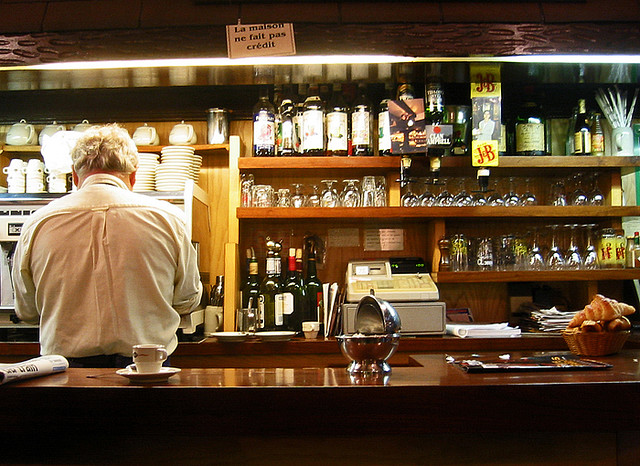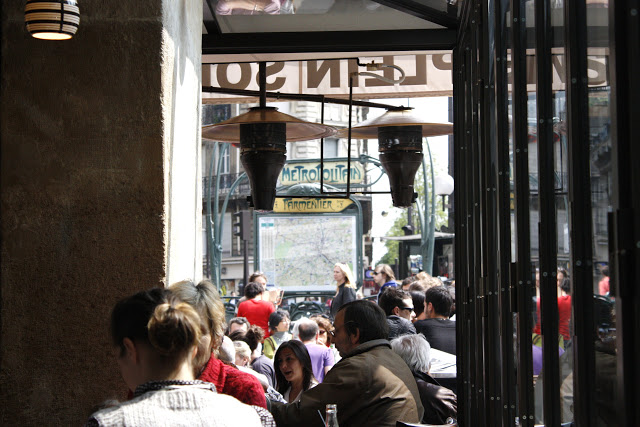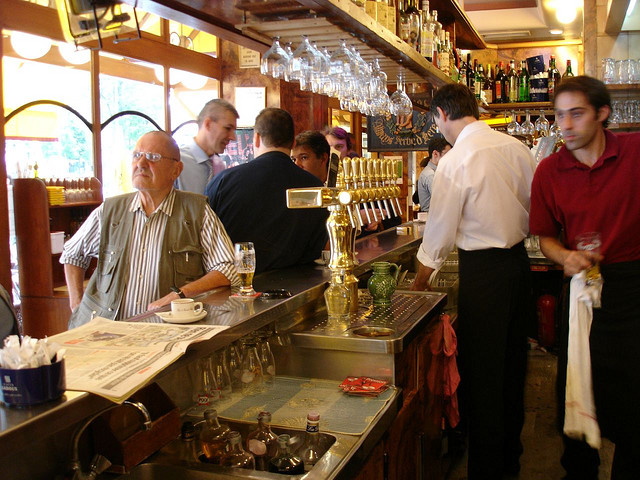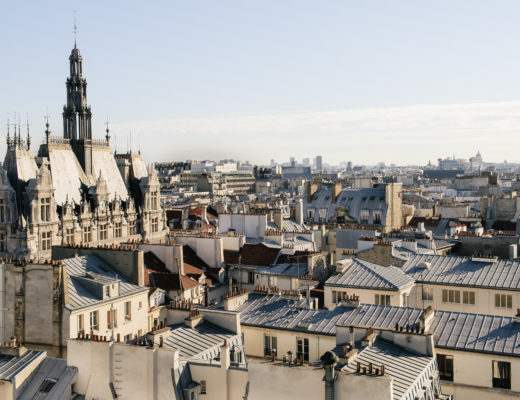The café – with its coveted outdoor seating, barmen serving espresso (usually at an usurious 2.50€), and prime people-watching locales – is a French institution. The idea of a Parisian café often conjures up images of waiters -black and white silhouettes- slithering in between groups of renowned philosophers, writers and thinkers like Sartre and Simone de Beauvoir, with their silver serving platter in hand and a cheeky smile splashed across their faces. At least, that’s what I always imagined.
The reality, however, is much different. At the beginning of the 20th century, there were over 500,000 cafés in France – the kind where conversations and serendipitous meetings at the bar were daily occurrences, where there was more than just an exchange of legal addictive stimulants happening but a real construction of social connections. Debating with the barman was expected and a even a sign of life carrying on as usual. Today, there are only
38,000 cafés and it would seem they’re disappearing faster than the bees (though in truth, the latter is
actually a serious threat to humanity. Sorry, Frenchies).

A recent study reported that 37% of French people think that cafés play an integral role in social bonding compared to 80%
20 years ago. What was once a convivial space to meet and engage with others has turned into a rapidly fading tradition that hasn’t been able to adapt to changing social-economic conditions; most notably, Americanization. From chain restaurants and diners to Starbucks and the unhealthy habit of eating on-the-go (literally, while walking), the French have embraced and even been seduced by an ever-growing American influence. But the French are turning their heads to traditional notions of café-going for other reasons as well.
The reason behind their lack of interest in former venues of social connection, like the café, is the same as the reason behind their lack of communication with their neighbors (this is particularly true in Parisian apartment buildings. My neighbors barely say hello or acknowledge our presence and I know virtually nothing about them). In French, this behavior is called
repli sur soi – turning inward or focusing on oneself. French society is becoming increasingly individualistic which, in turn, is creating a trend of withdrawing from proper social etiquette. Psychologist
Rachel Santerne says this is because there is also a climate of fear in France – “we no longer trust our neighbors”. This would also explain why innocuously complimenting a complete stranger on the street for their outfit is generally met with suspicion.
I don’t know them, what do they want from me? (I’ve learned to keep my compliments to a minimum as it only ever got me strange looks and terse retorts).
As we all know, internet and social media have drastically changed the way people conduct business and develop relationships with others. This has also affected the activities that young people, in particular, practice in cafés – whereas reading the newspaper or striking up a conversation with a stranger was once commonplace, working, surfing the net and engaging in long cell phone conversations have become paramount.
So with American-themed establishments catching French eyes of all generations and a heightened emphasis on the individual over the collective, does the café, as the French once knew it, have a shot at survival? Should the French accept the decline as necessary for progress or should they rightfully lament the change and fight to hold onto tradition? I feel quite mixed on the issue as the only appealing aspect of the café to hold onto would be the fact that you can sit and read/write/observe/think for hours in a space where others are creating their own memories and their own projects right around you. But the omelettes from powdered eggs and pitiful espresso? Good riddance!
Will the eventual disappearance of French cafés completely alter the landscape or just change the fantasy?













